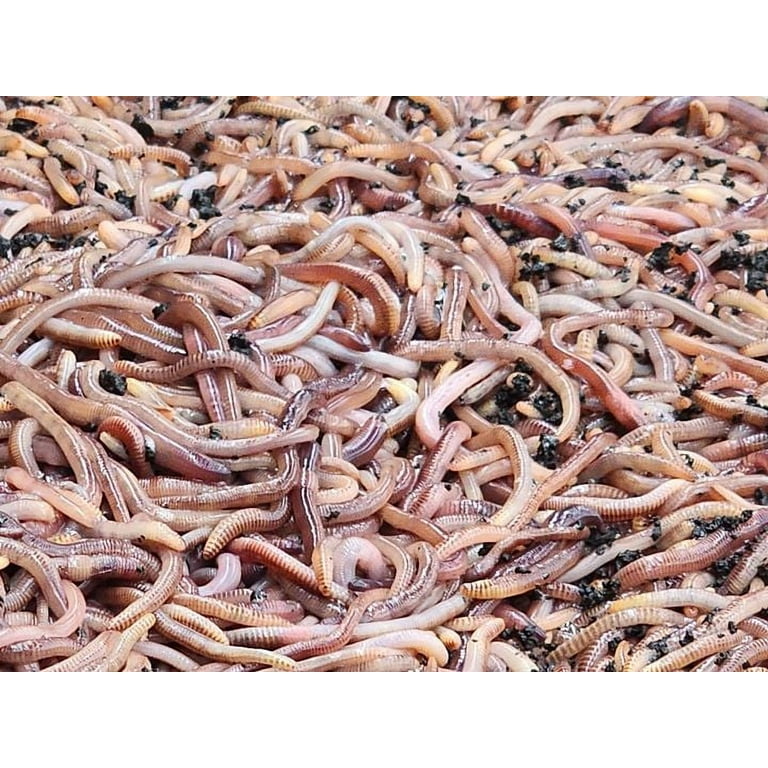Red worms: Composting made easy
Red worms: Composting made easy
Blog Article
Why Red Wigglers Are Necessary for Chemical-free Farming
Red wigglers play a critical role in organic farming, mainly with their unique capacity to decompose natural materials and enhance soil health. The level of their impact on farming methods and dirt biology increases fascinating questions about the future of natural farming.
Function of Red Wigglers in Dirt Health

Furthermore, red wigglers boost soil framework by producing channels as they tunnel. These networks enhance aeration and water seepage, promoting a healthier origin setting. Their task also assists in maintaining optimum dampness degrees, which is essential for healthy and balanced plant development.

Advantages of Worm Castings
Worm spreadings, the nutrient-rich waste matter created by red wigglers, function as a powerful amendment for natural farming. These castings are brimming with important nutrients such as nitrogen, phosphorus, and potassium, which are important for plant growth. Unlike synthetic fertilizers, worm spreadings launch nutrients slowly, giving a constant supply over time and lowering the danger of nutrient leaching and overflow.
Furthermore, worm spreadings enhance soil framework and oygenation, promoting much healthier root systems. Their high organic issue material improves wetness retention, making it possible for plants to much better withstand dry spell conditions. In addition, worm castings include valuable bacteria that support plant health by reducing virus and improving nutrient uptake.
The application of worm castings can bring about enhanced crop yields and enhanced top quality of fruit and vegetables, making them a vital resource for natural farmers. Their use likewise straightens with lasting farming practices, adding to soil fertility without the unfavorable ecological influences linked with chemical fertilizers. In general, the consolidation of worm castings into agricultural practices cultivates a more resistant and efficient ecosystem, highlighting the value of red wigglers in organic farming systems.

Enhancing Nutrient Biking
(red wiggler worms for sale)Nutrient cycling is a crucial procedure in organic farming, and the combination of red wigglers plays a pivotal duty in improving this cycle. As red wigglers eat rotting natural issue, they secrete nutrient-rich spreadings, which are teeming with beneficial microbes.
Additionally, red wigglers help to accelerate the mineralization of nutrients, converting them from inert forms into bioavailable kinds that plants can absorb. This process is critical for maintaining dirt fertility and promoting healthy plant development. The existence of red wigglers additionally urges a varied soil environment, cultivating a balance of nutrients that supports different plant species.
Improving Soil Framework
The improvement of soil structure is essential for cultivating a healthy farming ecosystem, and the activity of red wigglers substantially adds to this improvement. These earthworms play a necessary role in freshening the dirt and creating a network of channels that assist in water seepage and root infiltration. As they tunnel through the soil, red wigglers break up compressed layers, permitting better oxygen exchange and advertising microbial task.
Furthermore, the organic issue created from their waste, referred to as vermicast, boosts dirt gathering. This process creates secure globs of soil particles, enhancing soil porosity and lowering disintegration (red wigglers). The presence of red wigglers additionally urges the advancement of helpful fungal networks, which are essential for nutrient uptake by plants
Encouraging Lasting Practices
Integrating red wigglers into natural farming techniques not just enhances dirt wellness yet likewise advertises lasting farming approaches. These earthworms play a vital function in nutrient biking, transforming natural waste right into beneficial compost that enhances the dirt. By using red wigglers, farmers can efficiently minimize dependence on artificial plant foods, consequently decreasing chemical overflow and its damaging results on ecosystems.
Additionally, the consolidation of red wigglers motivates the practice of recycling organic materials, such as kitchen scraps and ranch waste. This waste decrease strategy not only reduces disposal expenses but also cultivates a closed-loop system where nutrients are continually returned to the dirt (red wigglers). Such techniques are crucial in reducing climate modification, as they enhance carbon sequestration and decrease greenhouse gas discharges
In addition, red wigglers boost water retention in the dirt, which is important in red worms times of dry spell. Their burrowing activities develop networks that allow water to penetrate deeper right into the ground, thus promoting reliable water use. Ultimately, incorporating red wigglers right into organic farming not only sustains biodiversity yet also aligns with the concepts of sustainable farming, supplying an alternative approach to food production.
Conclusion
In final thought, red wigglers play a vital duty in organic farming by dramatically boosting soil health and wellness and fertility. Therefore, the combination of red wigglers into agricultural methods is essential for promoting sustainability and boosting overall dirt top quality.
Report this page